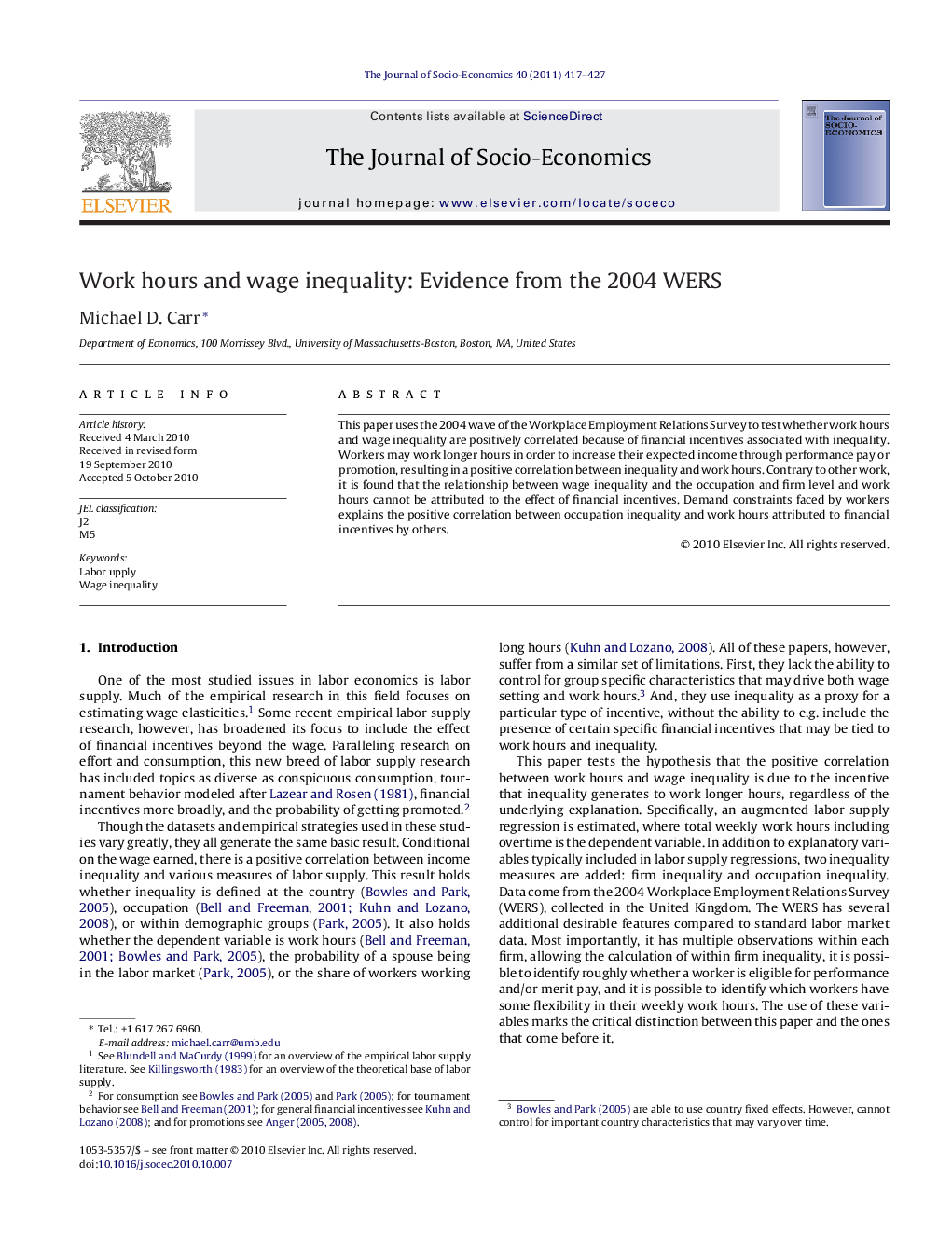| Article ID | Journal | Published Year | Pages | File Type |
|---|---|---|---|---|
| 970807 | The Journal of Socio-Economics | 2011 | 11 Pages |
This paper uses the 2004 wave of the Workplace Employment Relations Survey to test whether work hours and wage inequality are positively correlated because of financial incentives associated with inequality. Workers may work longer hours in order to increase their expected income through performance pay or promotion, resulting in a positive correlation between inequality and work hours. Contrary to other work, it is found that the relationship between wage inequality and the occupation and firm level and work hours cannot be attributed to the effect of financial incentives. Demand constraints faced by workers explains the positive correlation between occupation inequality and work hours attributed to financial incentives by others.
Research highlights▶ Uses 2004 WERS to analyze relationship between work hours and wage inequality. ▶ Others argue that occupation wage inequality represents possibilities for increase earnings. ▶ It is found this is not the case, coefficients on inequality suffer from omitted variable bias. ▶ Correlation between inequality and work hours represents variations in work hours/wage contracts across occupations and firms.
